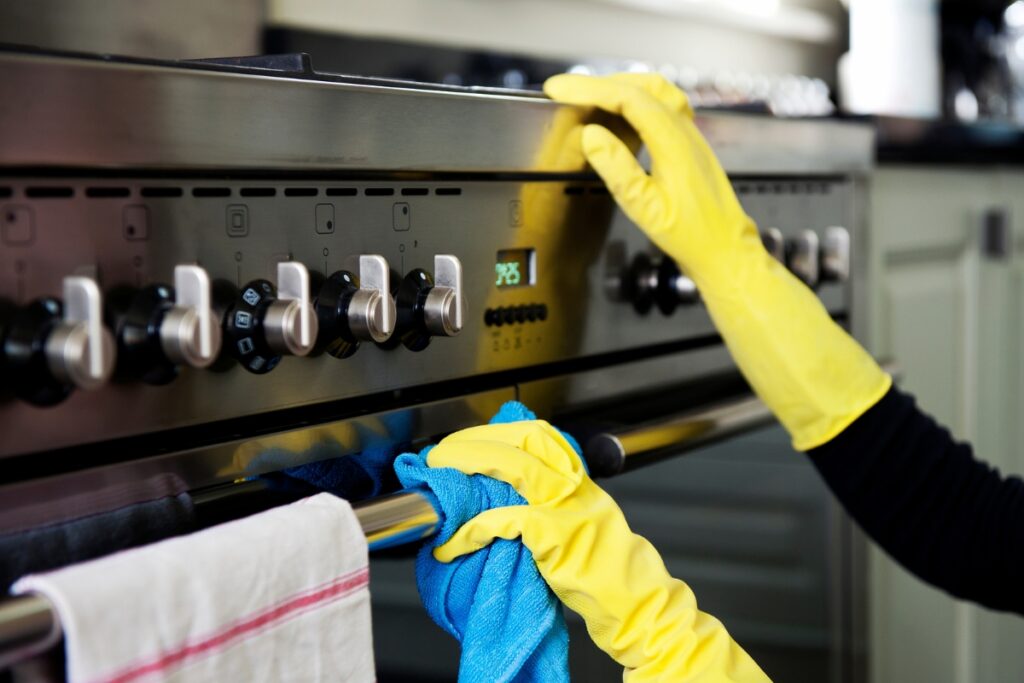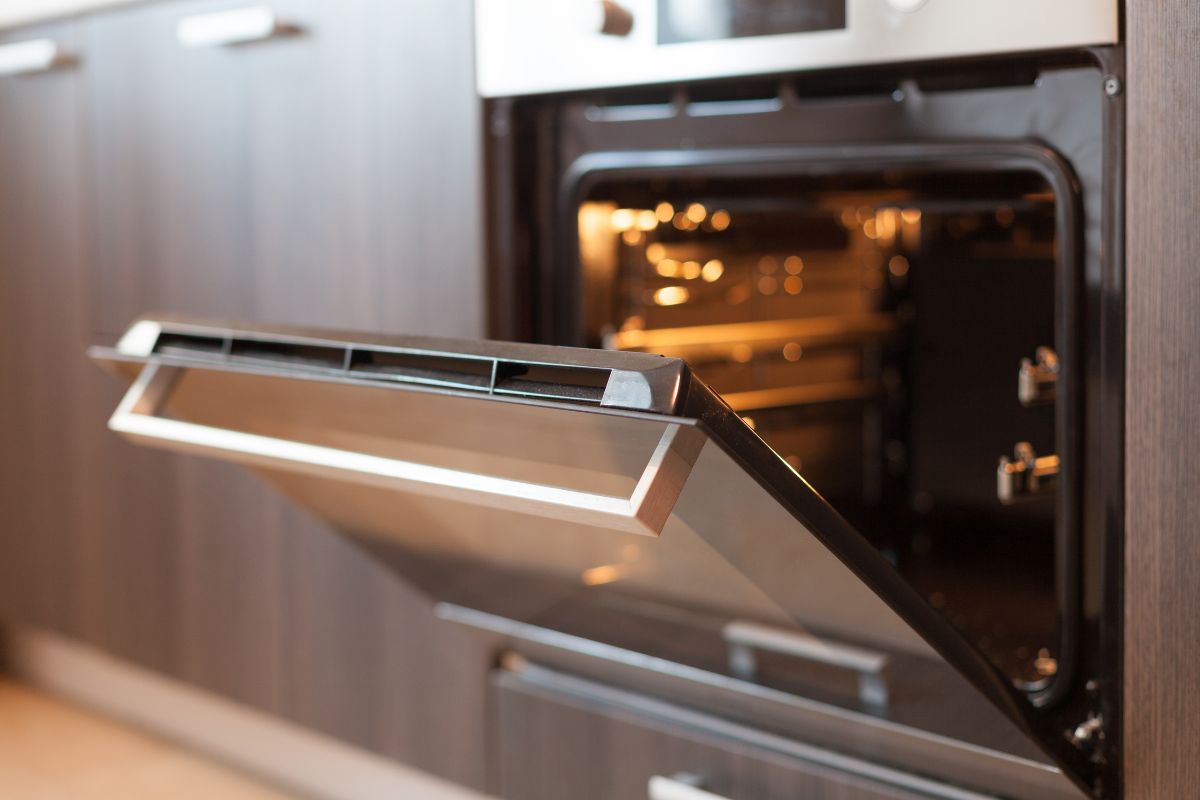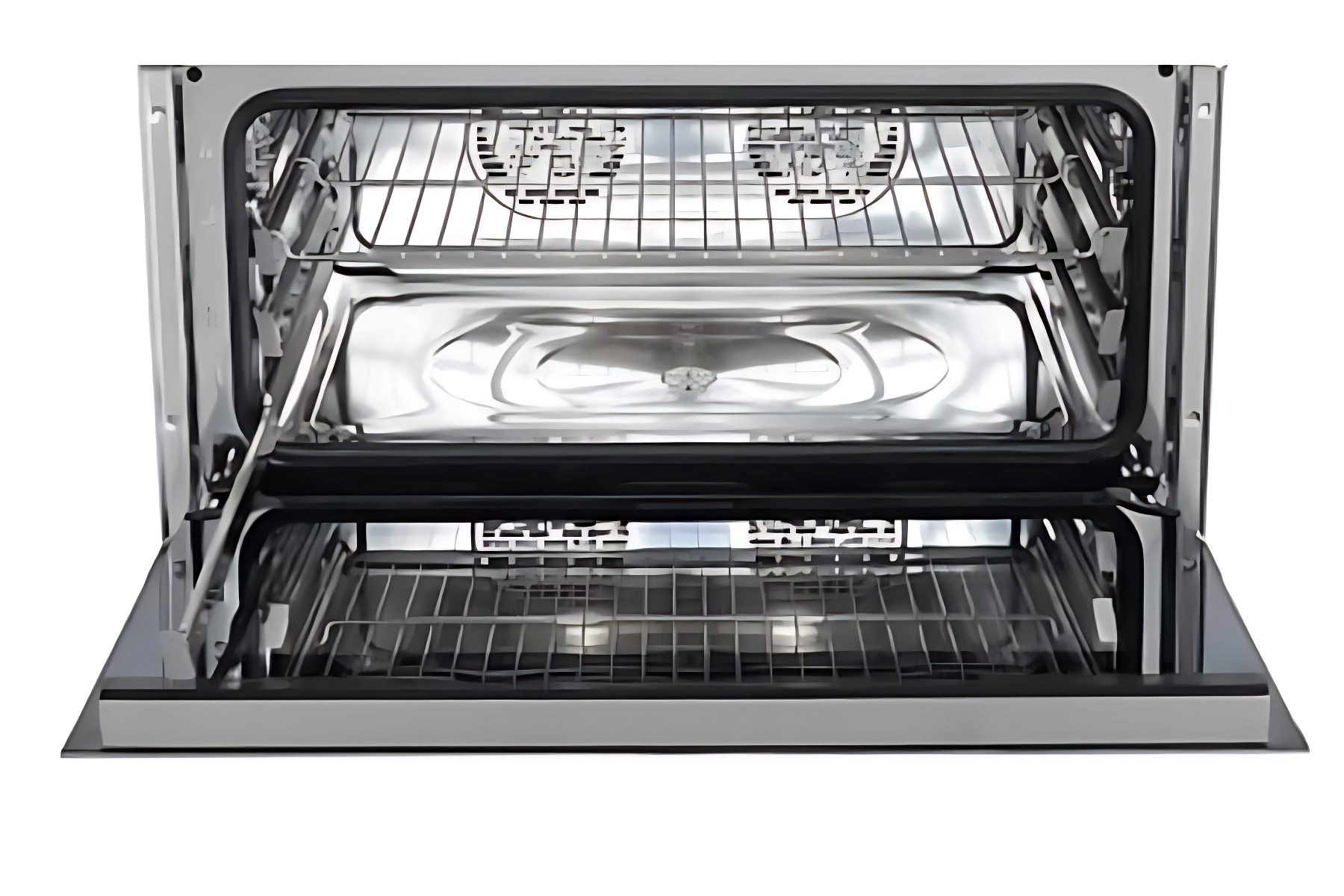Cleaning a pizza oven might not be the first thing on your mind after enjoying a delicious homemade pizza, but it’s one of the most important steps to keep your oven working well and your pies tasting great. Over time, grease, crumbs, and burnt food build up, which can affect how evenly your oven heats and even impact the flavors of your next bake.
Now, not all pizza ovens are the same. Whether you have a wood-fired, gas, or electric pizza oven, each type has its own quirks when it comes to oven cleaning. That means the best cleaning methods can vary quite a bit depending on your oven’s design and how you use it.
In this blog, we’ll explore three different cleaning methods tailored specifically for wood-fired, gas, and electric pizza ovens. Understanding these differences helps you care for your oven properly, avoid damage, and enjoy perfectly cooked pizzas every time.
Table of Contents
ToggleCleaning a Wood-Fired Pizza Oven
Wood-fired pizza ovens bring a unique flavor and crispness that few other ovens can match. But cleaning them requires special care because of the wood ash, soot, and high heat involved.
After every use, start by removing the ashes and leftover wood debris. Use a metal ash rake or scoop designed for this purpose to clear the cooking floor. Leaving ash inside not only affects the oven’s heat but can also create unwanted smoke or flavors in your next pizza.
Next, scrub the cooking surface and oven walls with a stiff, natural-bristle brush. Avoid wire brushes that might damage the refractory bricks. Focus on loosening any baked-on food or grease without chipping the surface.
Cleaning the chimney or vent regularly is crucial. Creosote and soot build up here and can restrict airflow, making your oven less efficient and more prone to smoke. Use a chimney brush or hire a professional if the buildup is heavy.
Pay special attention to the refractory bricks. These materials absorb heat and need gentle treatment. Never use water directly on hot bricks, and avoid harsh chemicals that can damage the stone.
Pro Tips from Experience
- Always wait until the oven is completely cool before cleaning to protect yourself and the oven.
- Use dry brushing first to remove loose debris before any wet cleaning.
- Sweep ashes toward the front and scoop them out gently to avoid scratching.
- Store a dedicated natural-bristle brush and ash rake near your oven for regular maintenance.
- For stubborn spots, a slightly damp cloth can help but avoid soaking any bricks to prevent cracking.
Cleaning a wood-fired oven regularly keeps it performing at its best and preserves that authentic wood-fired taste we all love.
Cleaning a Gas Pizza Oven
Gas pizza ovens offer convenience and consistent heat, but they come with their own cleaning challenges. Unlike wood-fired ovens, gas models don’t produce ash, but grease and food particles can still build up on the cooking surfaces and inside the oven.
Start by wiping down the cooking floor and walls after each use. Use a soft cloth or non-abrasive sponge with warm soapy water to remove grease and food residue. Avoid harsh chemicals that can damage metal finishes or leave harmful residues.
Check the gas burners regularly to ensure they are free from grease or debris. Blocked burners can cause uneven heating and affect cooking results. Use a soft brush or a cloth to clean around the burners carefully without damaging any parts.
Cleaning the vents is equally important. Grease can collect around vent openings, restricting airflow and causing the oven to work harder. Gently wipe vents with a damp cloth or use a small brush to clear trapped debris.
Door glass and seals often collect fingerprints and grease. Clean these with a mild vinegar solution applied to a soft cloth. Avoid spraying directly onto seals to prevent moisture from affecting their sealing ability.
Pro Tips
- Always turn off the gas and allow the oven to cool completely before cleaning.
- Remove racks and trays for separate soaking to make cleaning easier.
- Use a soft brush instead of metal tools near burners and vents to avoid damage.
- Regularly inspect the gas connections and burners for safety and efficiency.
- Wipe spills promptly after cooking to prevent baked-on grease buildup.
Regular cleaning not only keeps your gas pizza oven looking good but also ensures it heats evenly and lasts longer.
Cleaning an Electric Pizza Oven
Electric pizza ovens are popular for their precise temperature control and ease of use. Because they rely on electrical heating elements, cleaning requires extra caution to protect these sensitive parts.
Start by unplugging the oven and waiting until it cools completely. Never apply water or cleaning solutions directly to the heating elements or any electrical components. Instead, use a damp cloth lightly moistened with a mild detergent solution to wipe down interior surfaces.
For the cooking trays and racks, remove them and soak in warm, soapy water. Use a soft sponge to scrub away grease or food particles. Avoid abrasive materials that can scratch the non-stick surfaces.
Dust and crumbs can accumulate around vents and fans inside the oven. Use a soft brush or canned compressed air to gently remove debris. Be careful not to push dirt further into the appliance.
The door glass should be cleaned with a mild glass cleaner or a vinegar-water solution applied with a soft cloth. Dry thoroughly to prevent streaks and moisture buildup.
Pro Tips from Experience
- Use a soft-bristled brush to reach tight corners without damaging components.
- Avoid harsh chemical cleaners that might corrode metal parts or leave residue.
- Regularly inspect power cords and connections to ensure safety.
- Wipe down the exterior regularly to keep the oven looking new.
- Clean up spills as soon as possible since electric ovens lack high heat to burn off messes naturally.
Maintaining Pizza Stones and Oven Floors
Pizza stones are at the heart of every great pizza oven, but they require careful handling to stay in good condition. To clean a pizza stone, avoid using soap or harsh chemicals, as these can seep into the porous surface and affect flavor. Instead, scrape off any burnt food gently with a plastic scraper, then wipe with a damp cloth. Let the stone dry completely before using it again to prevent cracking.
Over time, stones may crack or become too worn for optimal cooking. Signs it’s time to replace them include deep cracks, excessive chipping, or uneven heating during baking. When replacing, choose stones that fit your oven’s specifications to maintain proper airflow and heat distribution.
Oven floors vary depending on the oven type but generally benefit from regular sweeping of ashes or debris. Avoid pouring water directly on stone or brick floors, as this can cause thermal shock and cracking. Proper care and gentle cleaning extend the life of your oven floor and keep cooking surfaces safe.
Safety Precautions for Cleaning Pizza Ovens
Always allow your pizza oven to cool completely before starting any cleaning. Working on hot surfaces increases the risk of burns and damage. Use heat-resistant gloves when handling ashes or oven tools.
Wear protective gear such as gloves and, if needed, a dust mask to avoid inhaling ash or dust particles. Handle ashes carefully to prevent spreading fine dust into the air.
Avoid harsh chemical cleaners and abrasive tools that can harm oven materials. Stick to natural cleaners and soft brushes or cloths. These precautions protect both you and your oven.
When to Seek Professional Pizza Oven Cleaning
Sometimes a deep cleaning requires professional expertise. If you notice persistent smoke, strong odors, or uneven heating even after regular cleaning, it may be time to call in the experts.
Professional cleaning services have specialized tools to remove heavy soot, creosote, and buildup from chimneys and oven interiors. They also inspect for structural issues that could affect performance.
Investing in professional maintenance can prolong your pizza oven’s lifespan, improve cooking quality, and ensure safe operation. Regular checkups complement your own cleaning routine and keep your oven in top shape.
Recommended Cleaning Schedule for Pizza Ovens
Keeping your pizza oven clean on a regular basis ensures consistent cooking performance and extends the life of your appliance. The cleaning frequency varies depending on the type of oven you have. Below are guidelines tailored for wood-fired, gas, and electric pizza ovens.
Wood-Fired Pizza Oven Cleaning Schedule
- Daily: Remove ashes and sweep the cooking floor after each use
- Weekly: Brush the interior walls and clean the chimney or vent
- Monthly: Deep clean the oven floor and inspect refractory bricks
- Seasonal: Schedule professional chimney inspection and cleaning
Gas Pizza Oven Cleaning Schedule
- Daily: Wipe cooking surfaces and remove food debris
- Weekly: Clean burners, vents, and racks with mild detergent
- Monthly: Deep clean oven interior including door seals and glass
- Seasonal: Check gas connections and perform professional maintenance if needed
Electric Pizza Oven Cleaning Schedule
- Daily: Remove crumbs and wipe interior surfaces
- Weekly: Clean racks and trays with warm soapy water
- Monthly: Deep clean heating elements and oven interior
- Seasonal: Inspect electrical connections and schedule professional checkups
Summary Table of Cleaning Tasks
| Cleaning Task | Wood-Fired Oven | Gas Oven | Electric Oven |
|---|---|---|---|
| Remove ashes and sweep floor | Daily | Not applicable | Not applicable |
| Wipe cooking surfaces | After every use | Daily | Daily |
| Brush interior and vents | Weekly | Weekly | Weekly (vents and fans) |
| Clean burners and racks | Monthly (racks) | Weekly | Weekly |
| Deep clean oven interior | Monthly | Monthly | Monthly |
| Inspect chimney or vents | Seasonally | Seasonally (vents/gas lines) | Seasonally (electrical) |
| Professional maintenance | Annually recommended | Annually recommended | Annually recommended |
Frequently Asked Questions by Users
Can I use the same cleaning schedule for a commercial pizza oven?
Commercial ovens often require more frequent and intensive cleaning due to higher usage. Consult the manufacturer’s guidelines and adjust daily and monthly tasks accordingly.
What should I do if my pizza oven develops a strong odor despite regular cleaning?
Strong odors may indicate trapped food debris or moisture buildup in vents or seals. Deep cleaning those areas or professional servicing may be necessary.
Is it necessary to clean the oven chimney even if I use a gas or electric pizza oven?
Gas and electric ovens may have vents or exhausts that need occasional cleaning, but chimneys are primarily a concern for wood-fired ovens.
How can I tell if my pizza oven stone needs replacing?
Cracks, uneven cooking surfaces, or persistent burnt flavors often indicate it’s time to replace the pizza stone or refractory floor.
Are there eco-friendly products recommended for cleaning pizza ovens?
Yes, many natural cleaners such as baking soda, vinegar, and citrus-based solutions effectively clean pizza ovens without harmful chemicals.







